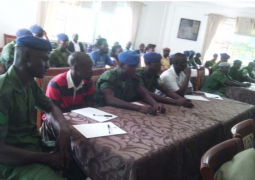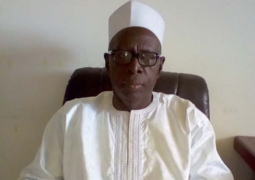Speaking at the briefing held at the health ministry conference room in Banjul, Dr Makie Taal, permanent secretary, Ministry of Health and Social Welfare, said the day which is celebrated in July of each year, is a tribute to the noble vision of the ECOWAS heads of state and governments who adopted the protocol that established WAHO with the main mission to attain the highest possible standard and protection of health of the people in the sub-region through the harmonization of the policies of member states, pooling of resources, cooperation with one another and win others for a collective and strategic combat against the health problems afflicting the sub-region.
He said WAHO continues to be a proactive tool for regional integration in health for the development and implementation of high impact interventions and programmes within the community through capacity building, data collection, evaluation and dissemination, promoting cooperation and coordination among others.
The theme selected for the 2014 WAHO day “Universal Health Coverage Issues, Challenges and Opportunities” is more than just another slogan and it is a wakeup call for implementation of appropriate strategies that would ensure that health systems contribute to equity and social justice, he said.
He added that the goal of universal health coverage is to ensure that all people obtain the health services they need without suffering financial hardship when paying for them.
He explained that for a community or country to achieve universal health coverage, several factors must be in place including a strong efficient, well run health system that meets priority health needs through people centered integrated care including services for HIV, tuberculosis, malaria, non communicable diseases, maternal and child healthamong others.
According to him, universal health coverage had a direct impact on a population’s health and access to health services enables people to be more productive and active contributors to their families and communities.
It also ensures that children could go to school and learn and at the same time, financial risk protection prevents people from being pushed into poverty when they have to pay for health services out of their own pockets.
He said to achieve this goal, they must chart a proper path for their health systems and strike the right balance between the justifiable health expectations of the populations and the current situation in the sub-region.
Dawda Ceesay, deputy permanent secretary, Ministry of Health and Social Welfare, highlighted the background of WAHO day celebration.
Read Other Articles In Article (Archive)

Tourism Security Unit trained on complaint handling, service excellence
Nov 6, 2015, 10:21 AM
GAF to stage inter-service drill competition
Dec 9, 2009, 12:08 PM



